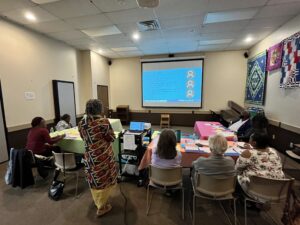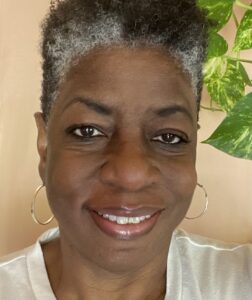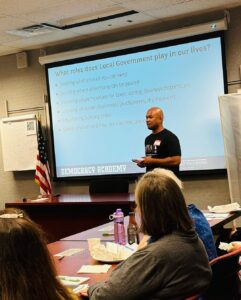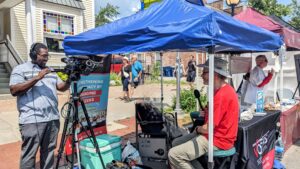Given all the changes taking place in Michigan’s election administration system and the anticipation around the 2024 election cycle, it’s more important than ever that voters have access to accurate and up-to-date information about how to vote.
That’s why in 2023, Voters Ed Fund launched the Voter Access Town Hall Series as part of the ramp up to our My City Votes 2024 campaign. These town halls were created to bring all things voter education to the residents of communities that have been historically marginalized in our democracy.
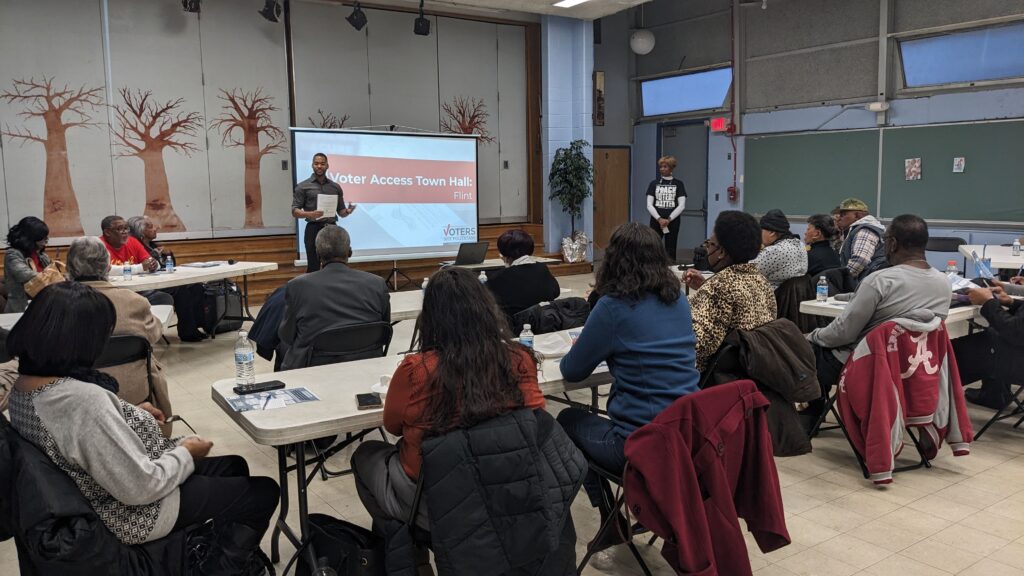
The Voter Access Town Halls are designed to be a publicly accessible community forum for individuals to learn, engage, and strategize their voting plan. The town halls, as well as the wider My City Votes campaign, focus on reaching sporadic voters who may not have the most updated information or who have “checked out” from voting for various reasons. Our goal is to not only provide a voter with what they need to know to be civically engaged but also the perspective to know why their vote matters, especially at the local level, and empower them to share that message with their wider network and community.
So far, My City Votes has completed town halls in Muskegon Heights, Benton Harbor, Grand Rapids, and Flint. Each town hall has taken on its own unique shape, bringing a diverse array of city and community leaders.
At every town hall, the local city clerk provides analysis on voter turnout in previous elections, explains new voting rights laws, and answers election-related questions from attendees. Other city officials have included city commissioners and school board members, who have discussed their local responsibilities and how it is tied to voter participation and electoral accountability. Additional town hall speakers have ranged from high school civic teachers to church leaders. Aside from information sharing, every town hall has created the opportunity for on-site voter registration, absentee ballot assistance, and double-checking one’s precinct or polling location .
These events wouldn’t be possible without partnerships from local organizations. Voters Ed Fund has successfully partnered with local community groups in planning these events, such as Berrien Forward in Benton Harbor, Muskegon Young Black Professionals in Muskegon Heights, Urban Core Collective in Grand Rapids, North Flint Neighborhood Action Council in Flint, and more.
The My City Votes Voter Access Town Halls have provided the necessary voter education residents of Michigan need in advance of the 2024 election cycle. Moreover, these events have opened an important dialogue between city officials and community members, creating a healthy relationship where residents can be heard and city officials be better informed of the needs within their area. The town hall series has proven to be an important way for Voters Ed Fund to ensure it reaches its goal of increasing voter turnout in 2024 and beyond.
Testimonies
- Grand Rapids town hall panelist and Kent County Commissioner, Ivan Diaz, remarked that it was “a real privilege to have been invited to be a panelist, [and I’m] looking forward to seeing all the good work from VNP in 2024”
- Grand Rapids town hall attendee wrote, “It was very informative and also nice to see our elected officials so committed to informing their community about the changes to legislation and how their role plays a part in that.”
- Grand Rapids town hall, “I loved the voices on the panel. Each official was very relevant to the work to be done and information to be learned for our 2024 election cycle.
- One Muskegon Heights town hall attendee wrote that the event was “the best interactive meeting I have went to from a non-political standpoint and are looking forward to changes taking place in the near future!”
